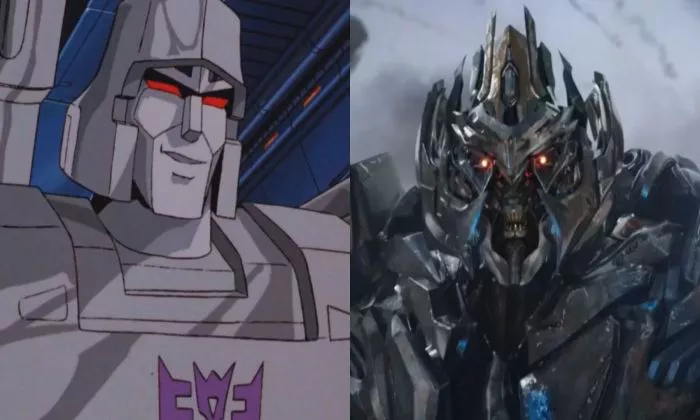The question of whether Megatron, the infamous leader of the Decepticons within the Transformers universe, can be considered the “good guy” is a complex and contentious one, often prompting debate among fans and scholars of the franchise. While Megatron’s actions are typically portrayed as villainous, there are certain interpretations and perspectives that suggest he may possess redeeming qualities or motivations that challenge the traditional narrative of hero versus villain. In this exploration, we’ll delve into various aspects of Megatron’s character, motivations, and actions to consider whether he could be seen as the “good guy” in certain contexts.
Complexity of Character:
One of the key arguments in favor of viewing Megatron as the “good guy” is the complexity and depth of his character. While he is typically depicted as the primary antagonist in the Transformers franchise, Megatron is also portrayed as a multifaceted individual with his own motivations, struggles, and moral ambiguities. Like many complex villains, Megatron’s actions are often driven by a combination of personal ambition, ideology, and past traumas, rather than pure malevolence.
Throughout various iterations of the franchise, Megatron’s character has been explored in greater depth, revealing layers of complexity and nuance that challenge simplistic notions of heroism and villainy. His motivations for leading the Decepticons in their quest for conquest and domination are often rooted in a desire to overthrow what he perceives as a corrupt and oppressive regime led by the Autobots, rather than a desire for power for its own sake.
Idealism and Revolution:
Another argument in favor of viewing Megatron as the “good guy” is his idealistic vision of a new world order based on Decepticon supremacy. While his methods may be ruthless and his actions may cause harm to innocent lives, Megatron believes that his quest for power and domination is ultimately justified in the service of a greater cause: liberating the oppressed masses of Cybertron from the tyranny of the Autobot regime.
From Megatron’s perspective, he is leading a revolution against a corrupt and oppressive system that has kept the lower castes of Cybertronian society downtrodden and oppressed for far too long. His desire to overthrow the Autobots and establish a new order based on Decepticon rule is driven by a sense of righteousness and a belief in the inherent superiority of his cause.
Anti-Heroic Traits:
In certain interpretations of the Transformers lore, Megatron exhibits characteristics commonly associated with anti-heroes rather than traditional villains. While he is undoubtedly ruthless and willing to do whatever it takes to achieve his goals, Megatron also displays qualities such as loyalty to his followers, a sense of honor, and a willingness to make personal sacrifices for the greater good of the Decepticon cause.
Despite his villainous actions, Megatron is often portrayed as a tragic figure whose quest for power and domination ultimately leads to his downfall. His struggles with internal conflict, self-doubt, and the weight of leadership humanize him and make him a more sympathetic character, challenging the simplistic dichotomy of hero versus villain.
Redemption Arcs:
In some iterations of the Transformers franchise, Megatron undergoes redemption arcs or moments of moral ambiguity that blur the lines between hero and villain. These instances suggest that there may be more to Megatron’s character than meets the eye and that he is capable of growth, change, and redemption under the right circumstances.
Whether through acts of self-sacrifice, moments of introspection, or alliances with unlikely allies, Megatron’s journey towards redemption challenges the notion of him as a purely villainous character and suggests that there may be hope for him yet.
Perspective and Interpretation:
Ultimately, whether Megatron can be considered the “good guy” depends largely on one’s perspective and interpretation of his character. While he is undeniably portrayed as the primary antagonist in most iterations of the franchise, there are aspects of his character and motivations that can be viewed in a more sympathetic light.
By exploring Megatron’s backstory, motivations, and actions in greater depth, fans and scholars of the Transformers franchise can gain a deeper understanding of his character and the complexities of his role within the larger narrative. While he may never be viewed as a traditional hero, Megatron’s character challenges conventional notions of heroism and villainy, reminding us that morality is often more nuanced than black and white.
In conclusion, the question of whether Megatron can be considered the “good guy” in the Transformers universe is a complex and subjective one that depends largely on one’s perspective and interpretation of his character. While he is typically portrayed as the primary antagonist in most iterations of the franchise, there are aspects of his character and motivations that suggest he may possess redeeming qualities or noble intentions that challenge traditional notions of heroism and villainy. By exploring Megatron’s character in greater depth and considering the complexities of his motivations and actions, fans and scholars of the Transformers franchise can gain a deeper appreciation for the nuances of his character and the moral ambiguities that define his role within the larger narrative.
Related Topics:
Does Megatron have a weakness?
Is Megatron actually the good guy?
Why is Bumblebee a special Transformer?

